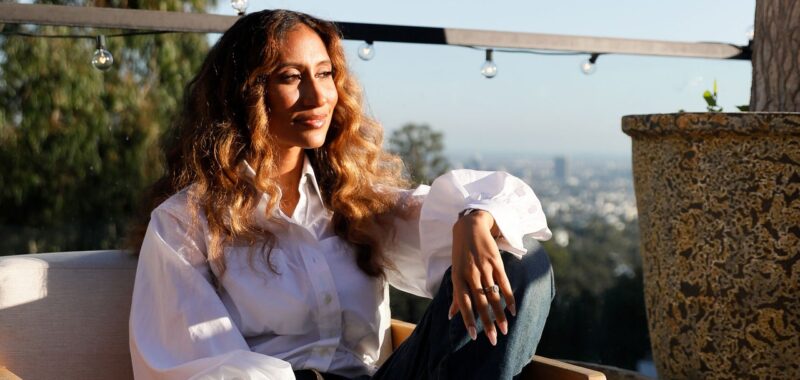Surprisingly or unsurprisingly, it wasn’t hard. Because all it takes is a family going through this. Even if they’ve never experienced midwifery, if they’ve had a baby in this country, they’ve seen the insides of how broken this system is. It’s enough for them to say something needs to change.
I just want to make a note about a word that I think is so critical to this conversation: joy. What I wanted from my birth experience was to feel joy, not dread or fear or pain. So much of the way that we catastrophize childbirth tries to steal that joy away from women, especially Black women—because of the statistics.
I remember when I was trying to decide whether I was going to have an out-of-hospital birth, and I had two friends who had done it before. One of them sent me a video of the moment that her baby was born. It was an unbelievably beautiful thing to watch. She was sitting in a pool surrounded by her midwives and her partner and just completely at peace and not screaming and cursing and freaking out. She caught her own baby. I was so blown away. I didn’t think that that’s what it could ever even be like. Those psychological changes are embedded in the midwifery model. But it’s an unlearning of the way that I think society has made childbirth essentially punishment for women.
I would also say the system is designed for women to not make decisions. There are a lot of practitioners who do not necessarily believe that women ought to be empowered to make decisions. They should just put their trust in the system. I think it has just turned out that that is not good enough. There’s a bias toward not encouraging women to be a part of the process.
Look, I’m not a doctor, you’re not a doctor. There are things doctors know that we don’t know. That’s obviously the case. But there is so much room for women to have a seat at the table in this conversation, and that has not been the norm until now.
I came into childbirth shocked at how little I knew about my own body, what it was built to do, this process. I also felt discouraged by my doctors from asking too many questions.
I mean, I was rushed out of a doctor’s office by a female doctor who told me I had exceeded her two-to-three-question max for a visit. This was the eighth doctor that I met with. I was dismissed and talked down to and made to feel like I was doing something wrong for asking questions about my body.
You want to feel like you’re in partnership with your caretaker. You don’t want to feel like you’re in a battle with them, or have to submit to their authority over you. The beauty of midwifery is that they position themselves as partners, as advocates, and as educators to the birthing families, the whole unit. They’re educating all of you.
By the way, one thing I want to say is I am not anti doctor; neither is anyone that’s a part of this BirthFund movement. What we are is pro-choice in the sense that we’re making informed decisions about our birth experiences and about our bodies.
I actually want to ask you a question, Abby. Your original birth plan did not include a home birth. But you not only ended up giving birth at home, you also had complications. You walked out of that experience saying you had a trauma-free, joyful, peaceful birth. Talk to me about that.

